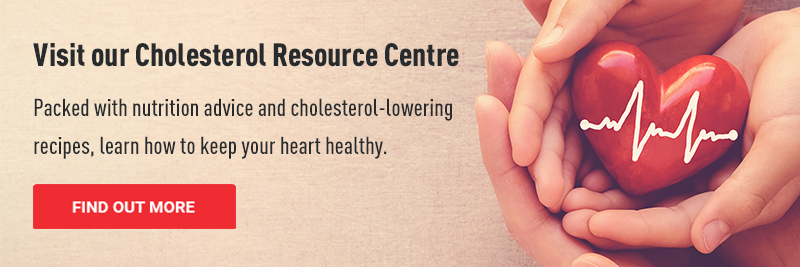Ministry of Health, NZ Health Survey: Annual update of key results 2014-2015. 2015, Wellington: Ministry of Health.
Ministry of Health, Annual Update of Key Results 2015/16: New Zealand Health Survey, Ministry of Health, Editor. 2016: Welllington.
Ministry of Health, Unpublished data email correspondence with: Ministry of Health 16 Jan 2017, Editor. 2016: Wellington.

Getting to the heart of the matter
The average heart beats about 4,800 times every hour – or about 3.3 billion times if you live to 80. That’s a lot of work for an organ that has to last a lifetime.
New Zealanders are living longer than ever (with life expectancy now in the 80s), but how healthy are we during those years?
According to the Heart Foundation, heart health is a serious issue for thousands of New Zealanders1.
Risky business
Approximately 1 in 4 New Zealanders aged over 18 have elevated cholesterol2 3.
Why is that a problem? Cholesterol levels have an impact on our heart health. Too much cholesterol in your blood causes fatty deposits to build up in blood vessels, making it harder for blood to flow through.
Our heart health is influenced by a number of things including our diet and lifestyle.
So what can you do to keep your heart healthy?
Download our free nutrition fact sheet for expert dietitian advice on heart health.
Be heart smart – get a head start
It’s important to start looking after your heart early in life to prevent problems later on.
Even small reductions in cholesterol can have a positive impact on overall heart health in the long run, especially when achieved at an early age and maintained over time.
Making lifestyle changes, especially changing some of the foods you eat, is important to help reduce your cholesterol levels – and help your overall heart health.
Little improvements can make a big difference. For example, Weet-BixTM Cholesterol Lowering contains plant sterols which are clinically proven to reduce cholesterol by up to 9% in 4 weeks, with just 2 biscuits (1 serve) consumed daily as part of a healthy diet low in saturated fat.
How does it work?
The breakfast innovation is the first cereal in New Zealand to harness plant sterols to effectively lower cholesterol levels. Each serve contains 2 grams of plant sterols, the daily intake recommended by the New Zealand Nutrition Foundation to reduce cholesterol, alongside a healthy diet and lifestyle.
Nevertheless, healthy eating is just one way to manage and lower your cholesterol – and ultimately, help ensure a healthy heart.
Other key ways to take charge of your heart health include:
Be physically active. It could be as simple as 30 minutes of brisk walking daily. Exercise increases HDL (or good) cholesterol levels, while reducing LDL (or bad) and triglyceride (fat) levels in the body.
Go smoke-free. Smoking greatly increases the risk to heart health, as it affects the vessels that supply blood to your heart and other parts of your body.
Manage your blood pressure and take medications as prescribed.
Achieve and maintain a healthy body weight. Being overweight may contribute to raised blood triglyceride and cholesterol levels.
Reduce alcohol intake to no more than 1 or 2 drinks a day. Avoid binge drinking and have alcohol free days. This may help lower your triglyceride levels.
Eat more plant based foods. Ensure you get in 2 serves of fruit and 5 serves of vegetables each day.
Want more information?
Our nutrition fact sheets, created by accredited dietitians, provide the latest nutrition and lifestyle information to help you understand which foods are the best to eat. Click here to see the heart health nutrition fact sheets.

The latest nutrition advice, plus health and wellness tips delivered to your inbox monthly
